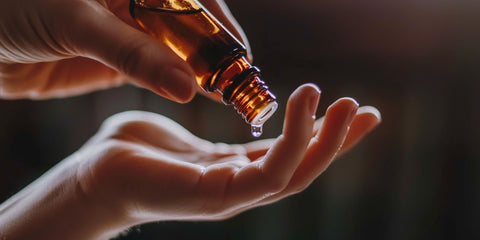The use of cannabidiol (CBD), a potent ingredient derived from hemp, has seen a meteoric rise in popularity across the health and wellness landscape. Consumers turn to CBD seeking relief from various ailments such as pain, anxiety, and insomnia. However, determining the right amount of CBD necessary to achieve desired effects can be puzzling, given the variability in products, individual body chemistry, and the lack of standardized dosing guidelines.
Understanding CBD and its legal status
CBD is one of over 100 compounds known as cannabinoids found in cannabis plants. Unlike its cousin tetrahydrocannabinol (THC), CBD is non-psychoactive, meaning it doesn’t produce the "high" associated with marijuana. The legal status of CBD varies; in many places, it’s legal if derived from industrial hemp with THC levels below 0.3%. Always review local laws before purchasing or consuming any CBD product.
Factors influencing CBD effectiveness
The experience of CBD can be influenced by several factors. Firstly, the method of consumption plays a crucial role. Whether ingested as oils (drops), capsules, gummies, or used topically, each method manifests its effects differently and at different speeds. Additionally, an individual's weight, metabolism, and biochemistry influence how much CBD should be consumed. Furthermore, the quality of the CBD product also affects performance, since products vary greatly in concentration and purity.
Optimal dosages for beginners
For those new to CBD, starting with a low dose and gradually increasing is advisable until the desired effect is achieved. A common starting point is small doses of around 5 milliliters/mg taken one to two times per day. Just as each person’s physiological makeup differs, so too does the perfect introduction dosage of CBD. Regular monitoring and adjustment are essential to find what works best.
- Morning dosage: Start with a minimal amount during your morning routine.
- Evening dosage: If needed, slightly increase the dose in the evening to promote better sleep or alleviate nighttime symptoms of pain or anxiety.
Dosage variations across different forms
Different forms of CBD—such as oil, tinctures, edibles, and topical applications—require distinct approaches to dosing. For instance, tinctures administered under the tongue have a faster onset than edibles, which must pass through the digestive system. Therefore, understanding the characteristics of each form helps in approximating how long it might take to feel the effects and how potent these effects might be.
Using scientific studies as a guide
Recent studies suggest a wide range of possible effective dosages. Research indicates anywhere from 20mg to 1,500mg of CBD may be used daily depending on the individual’s needs and the conditions being treated. For example, a comprehensive review highlighted that higher dosages might be needed for managing severe pain or intense anxiety. It's vital to approach these guides tentatively and adjust based on personal experience and possibly a healthcare provider’s recommendations.
CBD isolation vs. full-spectrum: What's your pick?
In determining the appropriate dose, one must consider whether the CBD is an isolate or part of a full-spectrum product. Isolates are purely CBD and beneficial for users who need to avoid THC for drug testing or personal sensitivity reasons. In contrast, full-spectrum CBD contains other cannabinoids, including trace amounts of THC, which could enhance the therapeutic effects—a phenomenon known as the entourage effect.
Note: While isolate requires more precision in dosing due to its high potency, full-spectrum products may offer enhanced benefits at somewhat lower doses.Calculating the exact dosage using tools and calculators
Various online calculators provide a more personalized dosage recommendation based on factors like age, weight, expected effects, and concentration of the solution. Users input their information to receive personalized guidance. It's important, however, to see these tools as starting points rather than definitive solutions.
Accounting for tolerance and condition severity
Long-term usage of CBD might lead to increased tolerance, necessitating incremental adjustments in dosage. Similarly, the severity of the condition being treated heavily influences the required dosage; more acute conditions often mandate higher quantities of CBD. It's prudent for users to maintain a record of their dosage practices and the subsequent effects observed, thus enabling continuous fine-tuning of their regimen.
User reviews and experiences
Anecdotal evidence, while not scientifically rigorous, provides additional context that might help new users set expectations. Many online forums and review sites feature discussions about dosage experiences, offering a broad spectrum of qualitative data. Such insights can serve as comparative benchmarks when evaluating how much CBD might be appropriate for similar conditions.



